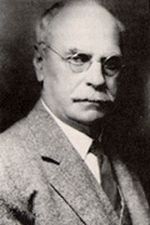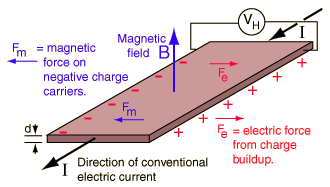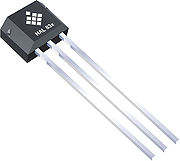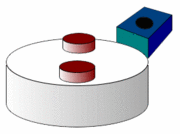Edwin Hall

Personal Background
Edwin Herbert Hall was born in Great Falls, ME on November 7, 1855 to Joshua Emergy Hall and Lucy Ann Hilborn Hall. He got his primary education at the local district school and prepared for college by attending "Gorhma Seminary" for two years. Before Hall was 16, he got into Bowdoin College in Brunswick, Maine and graduated as valedictorian of his class in 1875 with a Bachelor of Arts degree. After graduation, he served as principal of Gould's Academy in Bethel, Maine from 1875-1876,and he served as principal of Brunswick High School in Brunswick, Maine from 1876-1877.
After two years of teaching, he decided to further study physics, and in the fall of 1877, he entered Johns Hopkins University as a graduate student in physics. He wrote, "I should perhaps have studied law, if I had not felt myself unfitted to advocate a cause in which I did not believe. I turned to science, after two years of school teaching, because it was progressive and satisfied my standards of intellectual and moral integrity, not because I had any passionate love of it or felt myself especially gifted for scientific undertakings." While working under Henry Augustus Rowland, he discovered the Hall Effect in 1879. He was trying to find an answer to the question posed by Maxwell as to whether the resistance of a coil excited by a current was affected by the presence of a magnet. In 1895, he became a physics professor at Harvard and worked until his retirement in 1921.He died on November 20, 1938.
Scientific Contribution

Hall Effect
When a magnetic field is applied to a conductor or a semiconductor, electromotive force (EMF) is created perpendicular to the direction of the current and the magnetic field. This phenomenon is related to the moving charge in the current. The magnetic field that is perpendicular to the current-carrying wire makes the moving charge go to one side due to the Lorentz Force.
Industrial Contribution


Hall Effect Sensor
What is the Hall Effect Sensor?
A device that changes its output voltage depending on the intensity of the magnetic field. It is based on the Hall Effect.
How does it work?
Even if the current runs in the same direction, depending on the sign of the moving charges, the direction of the created electric field can vary. Also, the intensity of the electric field changes in response to the density of the moving charges. Using these phenomena, the intensity of the current-carrying moving charge in a solid can be measured, and in a semiconductor, the free electron can be identified
The usage of the Hall Sensor
Sensing the continuous current Sensing the alternating current Measuring the intensity of the magnetic field Detecting the polarity of the current Sensing temperature by detecting the intensity of the magnetic field in the Ferrite-Magnet
See also
Are there related topics or categories in this wiki resource for the curious reader to explore? How does this topic fit into that context?
Further reading
Bridgman, P. W. Biographical Memoir of Edwin Herbert Hall, 1855-1938
External links
http://www.nasonline.org/publications/biographical-memoirs/memoir-pdfs/hall-edwin.pdf
http://www.electronics-tutorials.ws/electromagnetism/hall-effect.html
http://farside.ph.utexas.edu/teaching/302l/lectures/node74.html
http://hyperphysics.phy-astr.gsu.edu/hbase/magnetic/hall.html
References
http://www.britannica.com/science/Hall-effect#ref273169
http://www.nndb.com/people/130/000099830/
https://nitum.wordpress.com/2012/09/28/biography-of-edwin-herbert-hall/